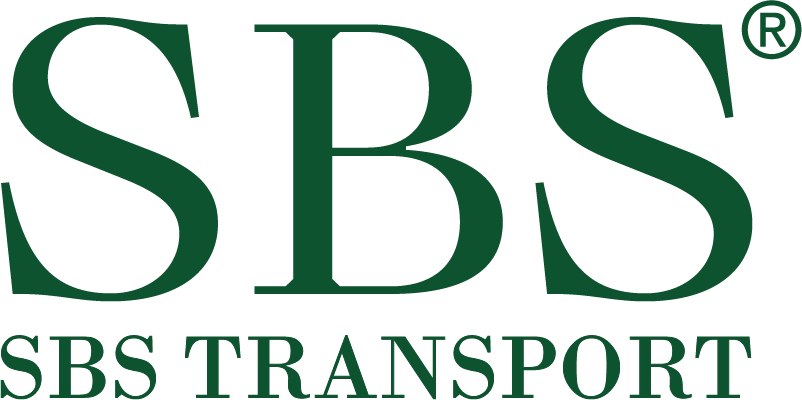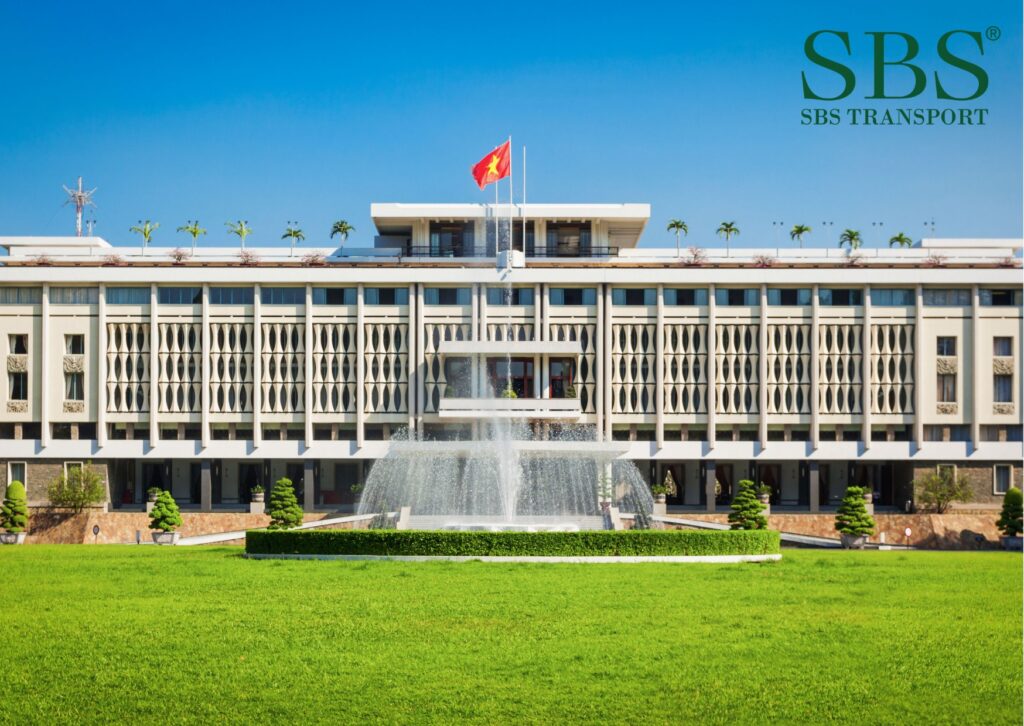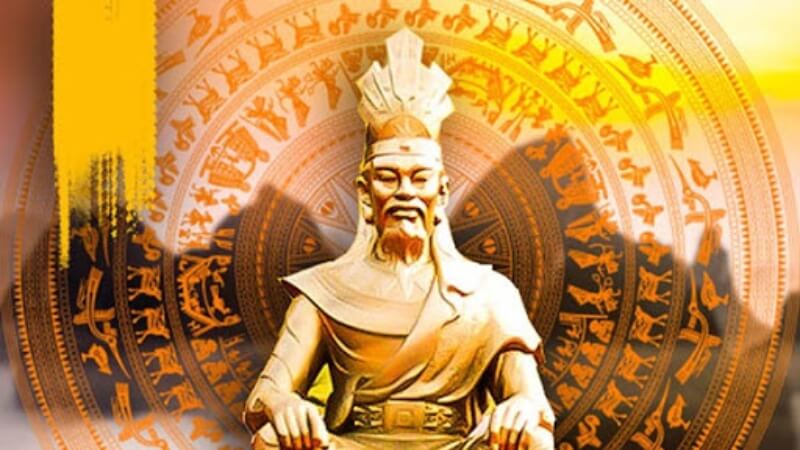
Origin of Hung Kings’ Commemoration Day
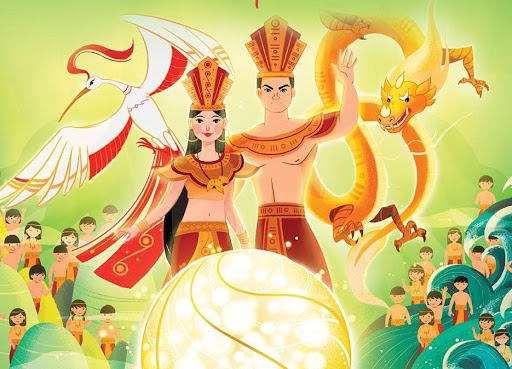
The Hùng Kings’ Commemoration Day is not only an occasion for the Vietnamese people to honor the contributions of the Hùng Kings in founding and defending the nation but also a time to celebrate and preserve the country’s traditional cultural values. The cultural activities during this day are diverse, vibrant, and deeply rooted in national identity.
Incense Offering and Procession Ceremony
The incense offering is the most significant ritual, taking place at the Upper Temple, considered the sacred center of the Hùng Temple complex.
Procession Ceremony:
The procession is conducted solemnly with the participation of groups from villages surrounding the Hùng Temple. The palanquins are intricately decorated, symbolizing reverence and gratitude to the Hùng Kings. Participants in the procession wear traditional costumes, carry flags, flowers, drums, and gongs, creating an atmosphere of sanctity.
After the procession, representatives from government agencies, organizations, and numerous people carry out the incense-offering ceremony. They pray for national peace, favorable weather, and happiness for families.
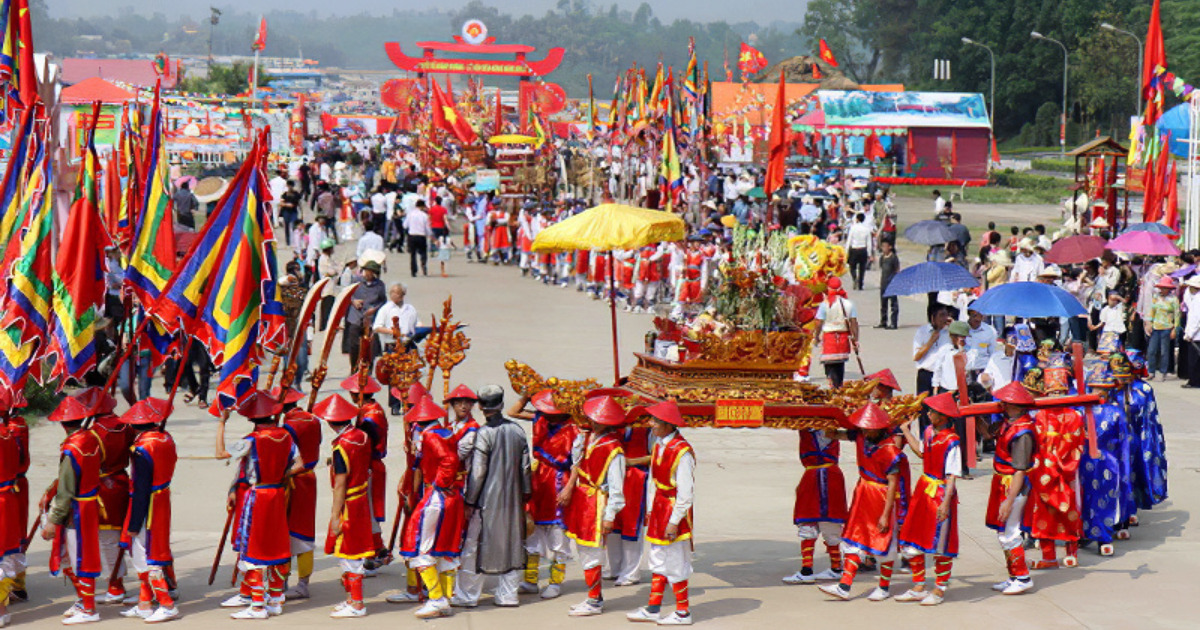
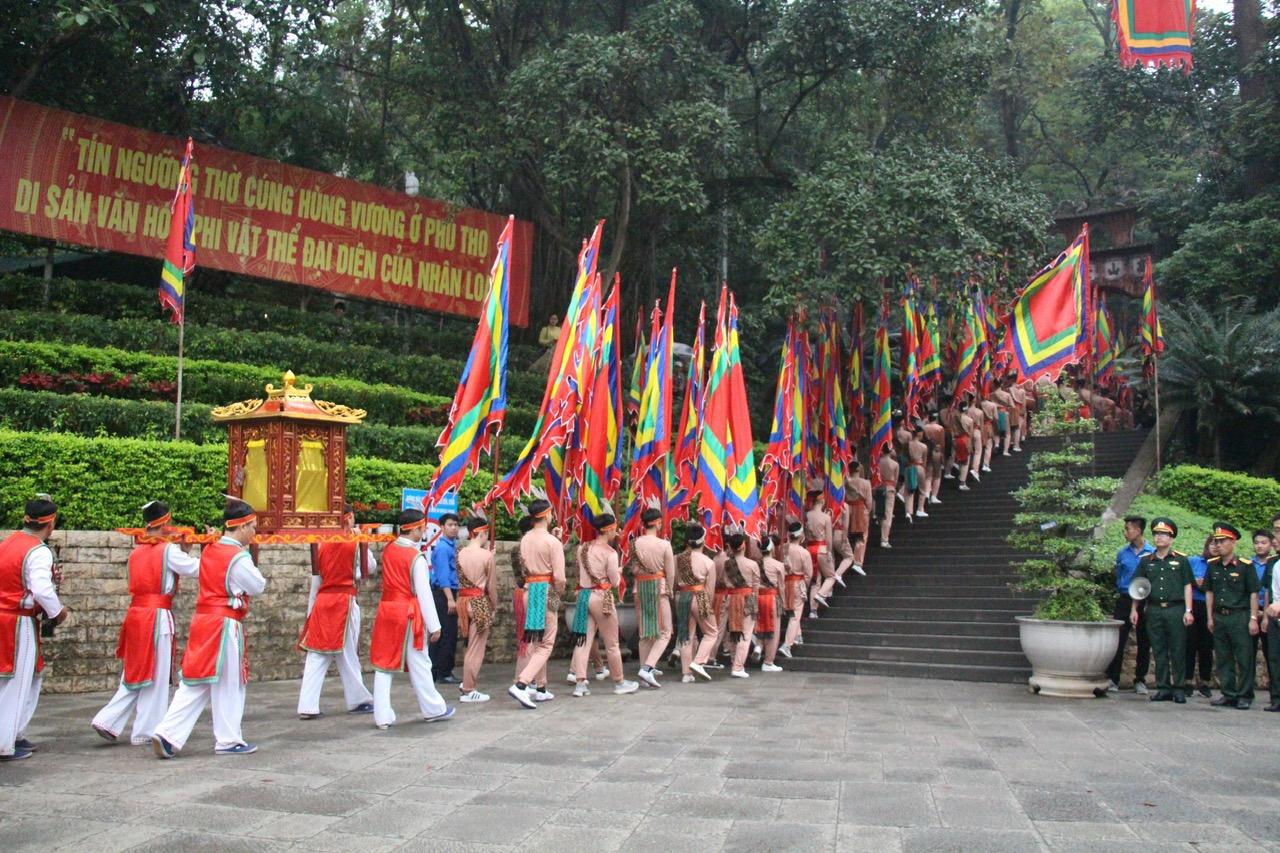
Xoan Singing – An Intangible Cultural Heritage
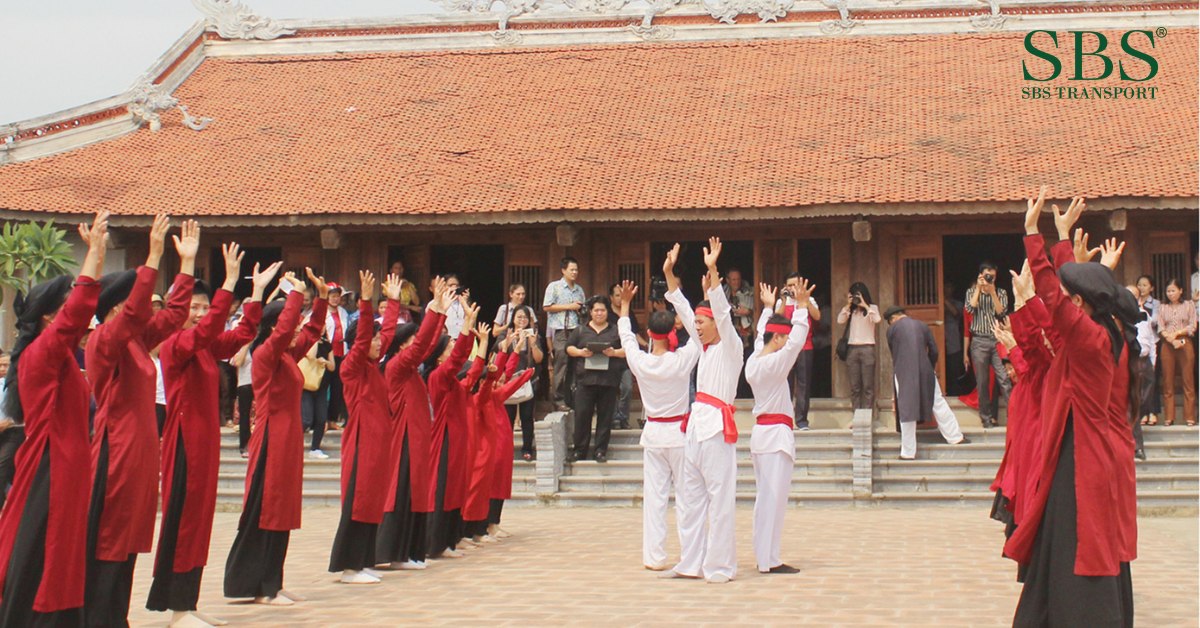
Xoan singing is a unique folk art form associated with the worship of the Hùng Kings. During the commemoration, Xoan performances are held in locations such as village communal houses, festival areas, and near the Hùng Temple.
Content:
The songs often praise the Hùng Kings and remind people of their ancestral origins. The lyrics are poetic and accompanied by traditional melodies, creating a solemn yet intimate atmosphere.
Significance:
The event provides an opportunity to introduce and promote Xoan singing, contributing to the preservation and continuation of Vietnam’s cultural heritage.
Bánh Chung and Banh Day Making Contest
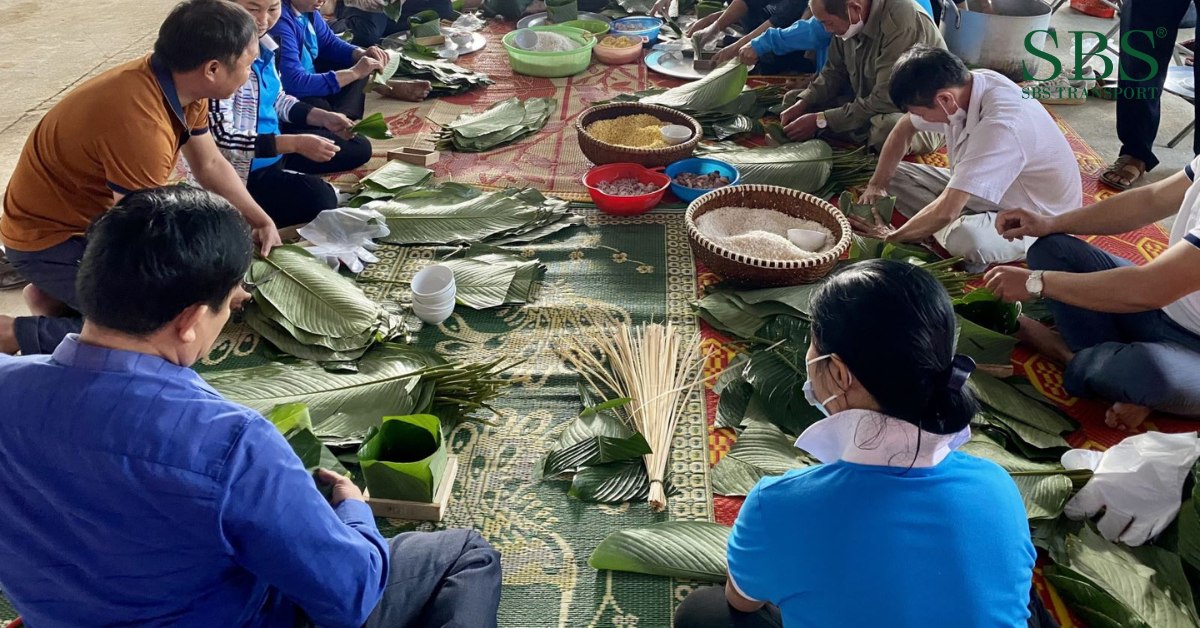
Linked to the legend of Lang Liêu, the bánh chưng (square sticky rice cake) and bánh dày (round sticky rice cake) making contest is an essential activity during the commemoration.
Contest Format:
Teams from various villages or provinces compete to create the most beautiful and delicious cakes.
Significance:
This activity not only recreates the legend from the Hùng Kings’ era but also honors the creative spirit, skill, and unity of the Vietnamese people.
Traditional Folk Games
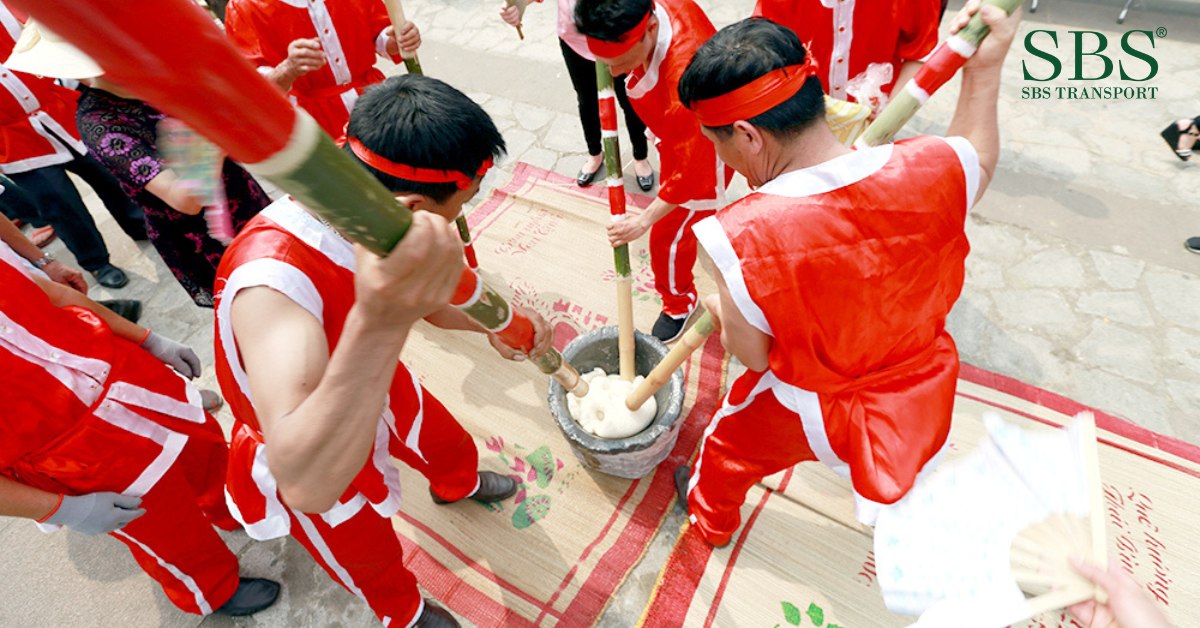
During the Hùng Kings’ Commemoration Day, a variety of folk games are organized, offering both entertainment and a glimpse into traditional culture:
- Tug-of-war: Symbolizing strength and teamwork.
- Wrestling: Reflecting martial spirit and resilience of ancient Vietnamese people.
- Shuttlecock throwing and stick pushing: These games attract many participants, creating a lively festive atmosphere.
Traditional Performing Arts
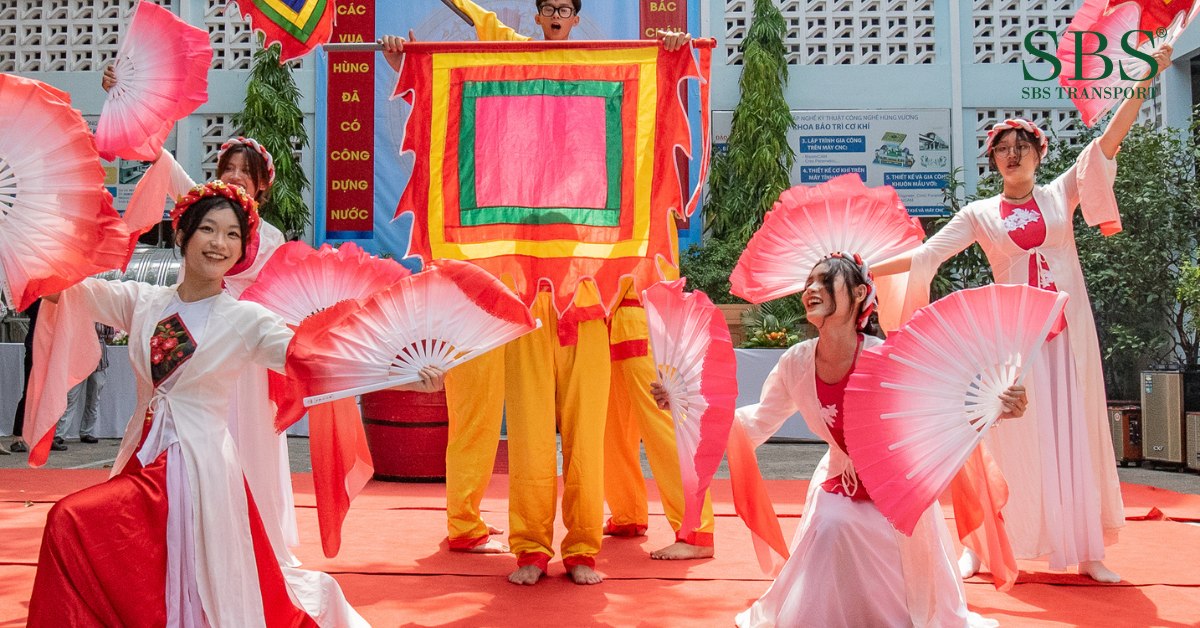
- Lion Dances: Vibrant and colorful lion dances create an energetic and captivating ambiance.
- Folk Art Forms: Performances of chèo (traditional opera), cải lương (reformed opera), and water puppetry provide visitors with insights into Vietnam’s rich artistic traditions.
- Quan ho Folk Songs: Smooth and melodious quan họ songs enhance the cultural and emotional depth of the festivities.
Cultural Exhibitions and Fairs
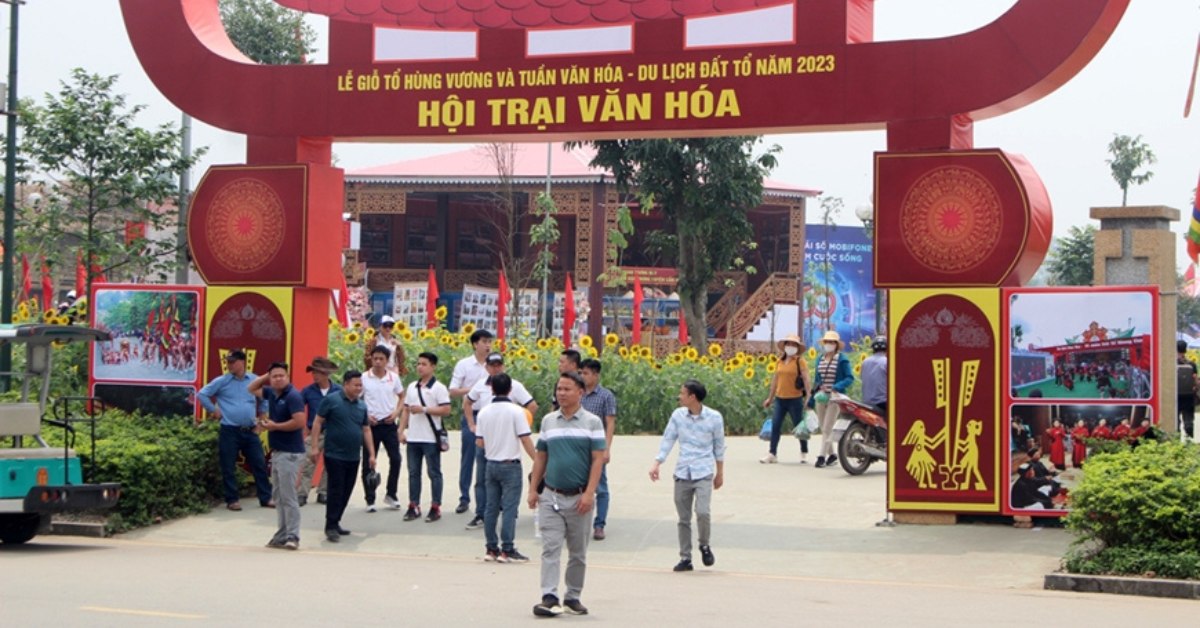
- Historical Artifacts Display: Historical artifacts and images from the Hùng Kings’ era are showcased, helping visitors understand the formation and development of the nation.
- Food Fair: Guests can savor traditional dishes from Phú Thọ province, such as bánh tai, bánh tẻ, and chè lam.
- Handicraft Booths: Traditional crafts like conical hats, ceramics, and folk paintings are displayed and sold, promoting both cultural heritage and local economic development.
Sports Competitions
Traditional sports are also held to foster community spirit:
- Dragon Boat Racing: Teams compete on dragon-shaped boats, symbolizing national strength and unity.
- Archery and Spear Throwing: These sports evoke the era of the Hùng Kings, when the nation was first established and defended.
The cultural activities during the Hùng Kings’ Commemoration Day not only honor the Hùng Kings’ contributions but also help preserve and promote the traditional values of the Vietnamese people. This occasion allows everyone to reflect on history, deepen their patriotic spirit, and take pride in their national heritage.
